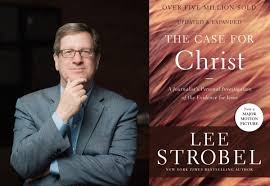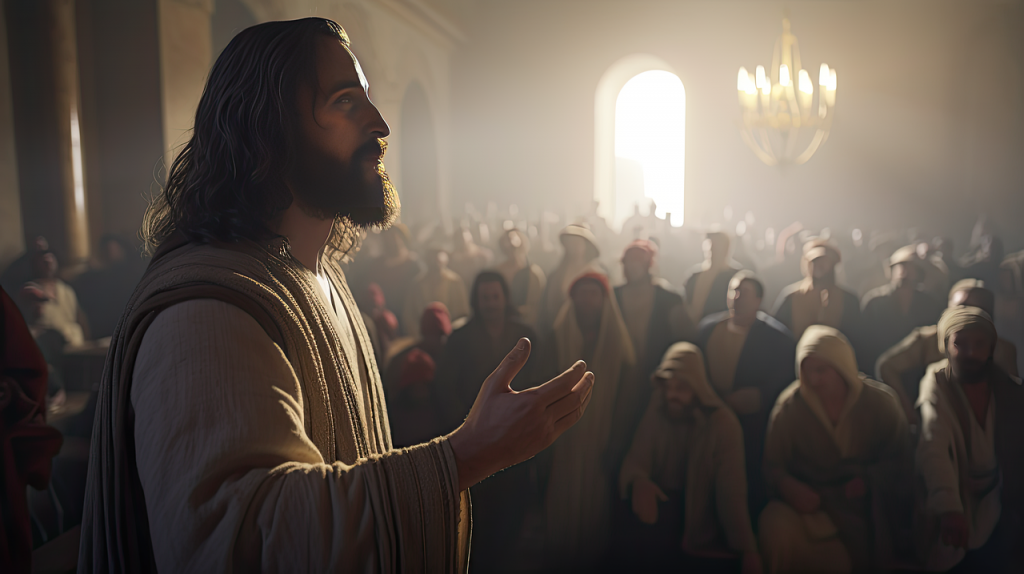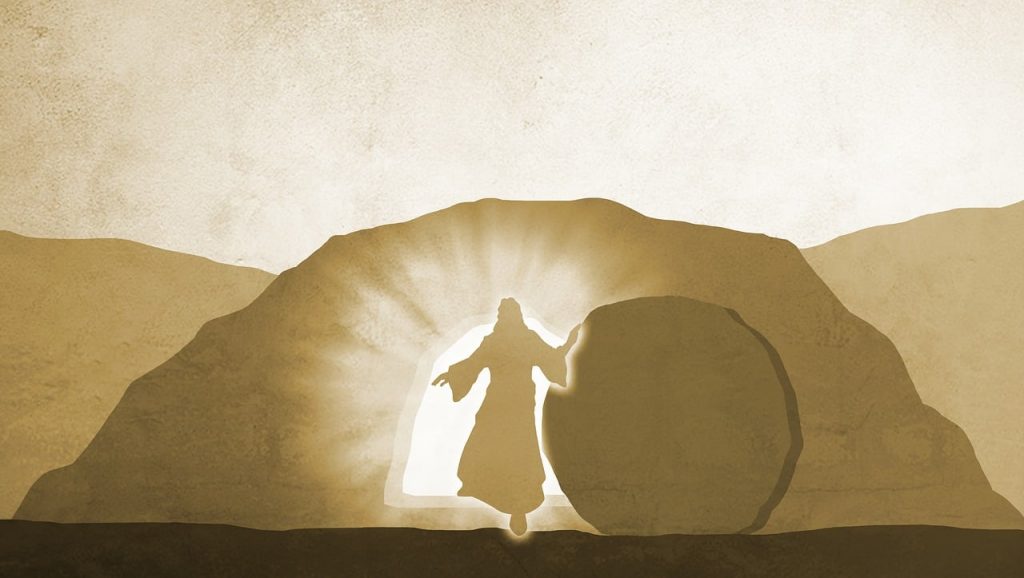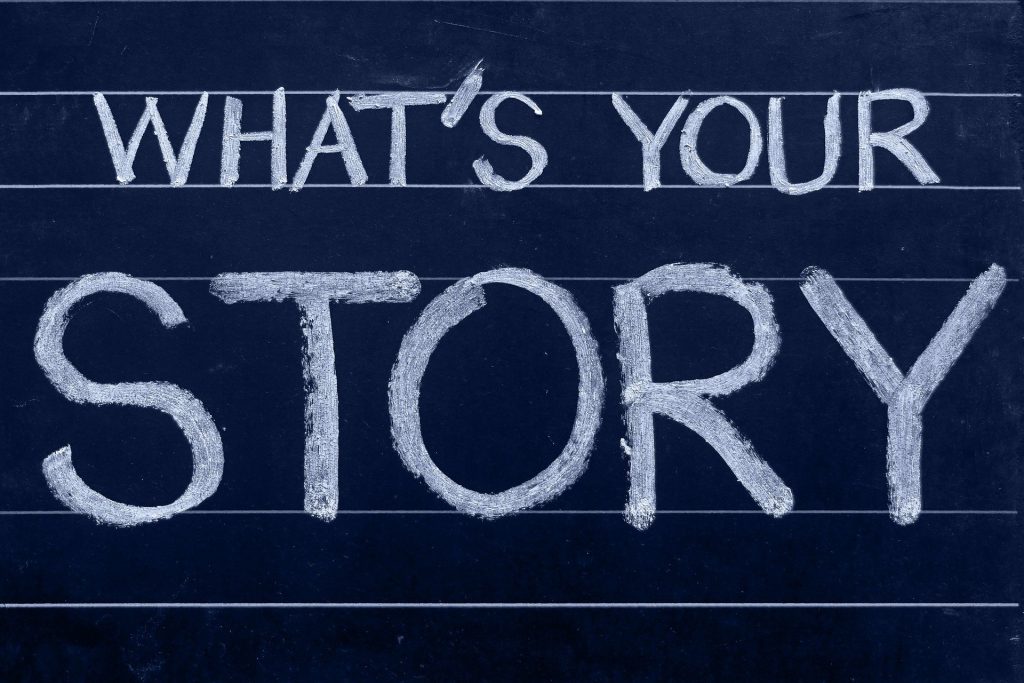Making a Case for Christ
Some of my earliest memories are going to my Grandparents (my mom’s parents) on Sunday evenings. This was a great time with cousins and aunts and uncles. Sometimes we would all go with them to their small country church.

One of the songs I remember singing at their church is Tell Me the Old, Old Story. This song started out as a poem that was written in 1866 by Katherine Hankey, then later put to music by William Howard Doane.
My memories of singing this song go back a long way, and this song was written further back than that. The Bible stories that this song speaks of go back even longer!
For a lot of people, the Bible and the stories in it are old, old stories that have no relevance in today’s world.
The story of the resurrection that we celebrate on Easter is one of those stories.
Lee Strobel was a journalist for the Chicago Tribune and other newspapers for 14 years. He was an atheist, but when his wife became a Christian, he began investigating the biblical claims about Jesus Christ and the resurrection.
What he discovered was not what he expected.
He took an investigative look at the evidence from the fields of science, philosophy, and history. He cross-examined a dozen experts with doctorates from schools such as Cambridge, Princeton, and Brandeis, asking hard-hitting questions, and built a captivating case for Christ’s divinity.
Strobel asked challenging questions like:
- How reliable is the New Testament?
- Does evidence for Jesus exist outside the Bible?
- Is Jesus who He said He was?
- Is there any reason to believe the resurrection was an actual event?

The results of his investigation were so different than what he expected that he wrote a book about what he discovered and became a Christian. The title of the book is The Case for Christ and has since been made into a movie.
In this book he breaks down the evidence for one of the most important events in history. He summarizes this with the four proofs of the resurrection otherwise known as the four Es.
EXECUTION – WAS JESUS DEAD
Did Jesus die on the cross? Was he dead? Virtually every scholar on planet Earth concedes that Jesus was dead after crucifixion. We have no record of anyone, anywhere, ever surviving a full Roman crucifixion. Even the Journal of the American Medical Association publish a peer reviewed scientific medical study of the evidence for the death of Jesus and said, “Clearly the weight of the evidence indicates that Jesus was dead even before the wound was inflicted.” Even the atheist New Testament scholar Gerd Lüdeman says, “Historically it’s indisputable that Jesus was dead.” So, Jesus was dead.
EARLY ACCOUNTS FOR THE RESURRECTION
The second category of evidence is the early accounts we have for the resurrection. In other words, I used to think as an atheist that the resurrection was a legend and that took a long time to develop in the ancient world. What I learned is that we have preserved for us a creed of the earliest Christian Church. A creed that is an eyewitness-based report of the resurrection of Jesus. Now this creed has been dated back by scholars to within months of the death of Jesus — within months. That is historical gold. So, we’ve got a news flash from ancient history on the resurrection.
EMPTY TOMB

The best evidence for the empty tomb is even the opponents of Jesus implicitly admitted the tomb was empty. When the disciples began proclaiming that Jesus had risen what the opponent said was, “The disciples stole the body.” They’re conceding that the tomb was empty, they’re just trying to explain how it got empty. So, everybody’s conceding that the tomb was empty. How it got empty is the real issue, and that goes to the fourth category of evidence, which is eyewitnesses.
EYEWITNESSES
For most of what we know about ancient history, it comes from one or maybe two sources of information and yet for the conviction of the disciples that they encountered the resurrected Jesus, we have no fewer than 9 ancient sources inside and outside the New Testament confirming and corroborating the conviction of the disciples that they encountered the risen Christ.
The resurrection of Jesus Christ means that He is who He said He was. If this is the case…He is God as human. If this is true…He is still alive today. If this is true…this old, old story is a new story every day. It’s pretty hard to deny this case for Christ.


























 The first you are probably familiar with; it’s the story of
The first you are probably familiar with; it’s the story of  The other story that he told was less popular. It’s a story about a Mexican priest,
The other story that he told was less popular. It’s a story about a Mexican priest, 